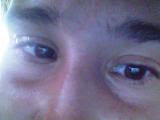Easter
Last weekend was Easter weekend, and spending it in the village made me feel so comfortable in my surroundings, as if I was a normal villager who has lived there my entire life. It was a completely different feeling than last year, where it did not feel like any special day whatsoever. (The church I was planning on attending, moved their service and I did not hear about it…so I spent the morning at the plantation with my brothers in my nice white church clothes.)
This year, as soon as I showed up at church, several people had already invited me to come over to eat at their house for the after church meal. I sat next to the faletua (pastor’s wife), behind all of my students and had a smile on their face as they sometimes slyly looked back to wave at me.
After the service, I felt like I was being tugged in different directions, trying to decide where to eat. I opted for the faletua’s invitation, and I am glad that I choose that invitation.
All of the members of the church had prepared a dish for the meal. There had to be at least 80 of us there (all the children were at their houses.) In Samoa, everything is done in ranking order, so I helped prepare the plates of food for the highest members of the church. While they were eating, I fanned the extra food, joked with the women, and tried to picture what they might be doing inside the church hall.
I pictured the fifteen people sitting on mats around the outside of the room with huge platters of food around them. Others situated around them fanning away flies. Then, at the end, the presentation of gifts. Money, food, pigs, soap were all being handed out to one another.
When they finished, it was time for us to eat. About 30 of us women sat on mats with huge amounts of food and delicious Samoan cocoa. All the women were joking with one another, which often lead to teasing me.
Outside our open fale, the men sat next to the wall of the house to try to get some shade from the hot day. They were all eating as well.
I headed home with a teenage boy who was instructed to carry my leftover food to my family, who was pleasantly surprised.
I rested in the afternoon with the sound of heavy rains out my window. Later, the rain stopped and I decided to attend another church that I was invited to.
The church put on a performance where there was acting, singing, dancing, and even a hysterical game of freeze dance. I sat with my neighbors smiling and laughing the entire time.
When it was over, I walked home with the young girl. As she held my hand as we walked through the pitch black night (it was about 8pm) I felt at home. This girl was like my sister. We spent the entire time joking, laughing and talking about our lives.
I think being the Peace Corps is all about making these connections with people. I love that is the main part of my job description. It is making this year better than last year as the relationships I have here have grown into something beautiful.
Like last year, there was no Easter eggs to dye, no Easter hunts, no chocolate, but there was friends, family and food. Can you ask for anything more?















